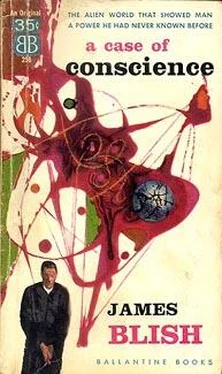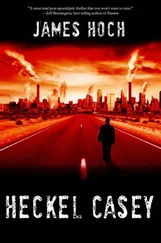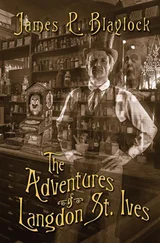His voice changed color suddenly. The change transformed him from a fat man delighted with a new toy into the philosopher-mathematician Henri Petard as no disclaimer of his hereditary title could ever have done.
“I invited you to hold your conference here,” he said, “because I thought you should all be witnesses to an event which I hope profoundly is not going to happen. I will explain:
“Recently I was asked to check the reasoning on which Dr. Cleaver based the experiment he has programmed for today. Briefly, the experiment is an attempt to store the total output of a Nernst generator for a period of about ninety seconds, through a special adaptation of what is called the pinch effect.
“I found the reasoning faulty — not obviously, Dr. Cleaver is too careful a craftsman for that, but seriously, all the same. Since lithium 6 is ubiquitous on that planet, any failure would be totally disastrous. I sent Dr. Cleaver an urgent message on the CirCon, to be tape-recorded on the ship that landed yesterday; I would have used the Tree, but of course that has been cut down, and I doubt that he would have accepted any such message from a Lithian had it not been. The captain of the ship promised me that the tape would be delivered to Dr. Cleaver before any of the remaining apparatus was unloaded. But I know Dr. Cleaver. He is bullheaded. Is that not so?”
“Yes,” Michelis said. “God knows that's so.”
“Well, we are ready,” Dr. Petard said. “As ready as we can be. I have instruments to record the event. Let us pray that I won't need them.”
The count was a lapsed Catholic; his injunction was a habit. But Ruiz-Sanchez could no more pray for any such thing than the count could — and no more could he leave the outcome to chance. St. Michael's sword had been put into his hand now so unmistakably that even a fool could not fail to recognize it. The Holy Father had known it would be so, and had planned for it with the skill of a Disraeli. Ruiz-Sanchez shuddered to think what a less politically minded Pope would have made of such an opportunity, but of course it had been God's will that this should happen in the time of Hadrian and not during any other pontificate. By specifically ruling out any formal excommunication, Hadrian had reserved to Ruiz-Sanchez' use the one gift of grace which was pertinent to the occasion at hand. And perhaps he had seen, too, that the time Ruiz-Sanchez had devoted to the elaborate, capriciously hypercomplex case of conscience in the Joyce novel had been time wasted; there was a much simpler case, one of the classical situations, which applied if Ruiz-Sanchez could only see it. It was the case of the sick child, for whose recovery prayers were offered.
These days, most sick children recovered in a day or so, after a shot of spectrosigmin or some similar drug, even from the brink of the terminal coma. Question: Has prayer failed, and temporal science wrought the recovery?
Answer; No, for prayer is always answered, and no man may choose for God the means He uses to answer it. Surely a miracle like a life-saving antibiotic is not unworthy of the bounty of God.
And this, too, was the answer to the riddle of the Great Nothing. The Adversary is not creative, except in the sense that He always seeks evil, and always does good. He cannot claim any of the credit for temporal science, nor imply truthfully that a success for temporal science is a failure, for prayer. In this as in all other matters, He is compelled to lie.
And there on Lithia was Cleaver, agent of the Great Nothing, foredoomed to failure, the very task to which he was putting his hand in the Adversary's service tottering on the edge of undoing all His work. The staff of Tannhauser had blossomed: These fruits are shaken from the wrath-bearing tree.
Yet even as Ruiz-Sanchez rose, the searing words of Pope Gregory VIII trembling on his lips, he hesitated still again. What if he were wrong after all? Suppose, just suppose, that Lithia were Eden , and that the Earth-bred Lithian who had just returned there were the Serpent foreordained for it? Suppose it always happened that way, world without end?
The voice of the Great Nothing, pouring forth lies to the last.
Ruiz-Sanchez raised his hand. His shaken voice resounded and echoed in the cave of the observatory.
“I, A PRIEST OF CHRIST, DO COMMAND YE, MOST FOUL SPIRITS WHO DO STIR UP THESE CLOUDS—”
“What? For heaven's sake, be quiet,” the UN man said irritably. Everyone else was staring in wonder, and in Liu's glance there appeared to be a little fear. Only the count's glance was knowing and solemn.
“ — THAT YE DEPART FROM THEM, AND DISPERSE YOURSELVES INTO WILD AND UNTILLED PLACES, THAT YE MAY BE NO LONGER ABLE TO HARM MEN OR ANIMALS OR FRUITS OR HERBS, OR WHATSOEVER IS DESIGNED FOR HUMAN USE:
“AND THOU GREAT NOTHING, THOU LUSTFUL AND STUPID ONE, SCROFA STERCORATE, THOU SOOTY SPIRIT FROM TARTARUS, I CAST THEE DOWN, O PORCARIE PEDICOSE, INTO THE INFERNAL KITCHEN:
“BY THE APOCALYPSE OF JESUS CHRIST, WHICH GOD HATH GIVEN TO MAKE KNOWN UNTO HIS SERVANTS THOSE THINGS WHICH ARE SHORTLY TO BE; AND HATH SIGNIFIED, SENDING BY HIS ANGEL; I EXORCISE THEE, ANGEL OF PERVERSITY:
“BY THE SEVEN GOLD CANDLESTICKS, AND BY ONE LIKE UNTO THE SON OF MAN, STANDING IN THE MIDST OF THE CANDLESTICKS; BY HIS VOICE, AS THE VOICE OF MANY WATERS; BY HIS WORDS, 'I AM LIVING, WHO WAS DEAD; AND BEHOLD, I LIVE FOREVER AND EVER; AND I HAVE THE KEYS OF DEATH AND OF HELL;' I SAY UNTO YOU, ANGEL OF PERDITION: DEPART, DEPART, DEPART!”
The echoes rang and dwindled. The lunar silence flowed back, underlined by the breathing of the people in the observatory and the sound of pumps laboring somewhere beneath.
And slowly, and without a sound, the cloudy planet on the screen turned white all over. The clouds and the dim oceans and continents blended into a blue-white glare which shone out from the screen like a searchlight. It seemed to penetrate their bloodless faces down to the bone.
Slowly, slowly, it all melted away: the chirruping forests, Chtexa's porcelain house, the barking lungfish, the stump of the Message Tree, the wild allosaurs, the single silver moon, the great beating heart of Blood Lake, the city of the potters, the flying squid, the Lithian crocodile and his winding track, the tall noble reasoning creatures and the mystery and the beauty around them. Suddenly the whole of Lithia began to swell, like a balloon —
The count tried to turn the screen off, but he was too late. Before he could touch the black box, the whole circuit went out with a puffing of fuses. The intolerable light vanished instantly; the screen went black, and the universe with it. They sat blinded and stunned.
“An error in Equation Sixteen,” the count's voice said harshly in the swimming darkness.
No, Ruiz-Sanchez thought, no. An instance of fulfilled desire. He had wanted to use Lithia to defend the faith, and he had been given that. Cleaver had wanted to turn it into a fusion-bomb plant, and he had got that in full measure, all at once. Michelis had seen in it a prophecy of infallible human love, and had been stretched on that rack ever since. And Agronski — Agronski had wanted nothing to change, and now was unchangeably nothing.
In the darkness, there was a long, ragged sigh. For a moment, Ruiz-Sanchez could not place the voice; he thought it was Liu. But no. It was Mike.
“When we have our eyesight back,” the count's voice said, “I propose that we suit up and go outside. We have a nova to watch for.”
That was only a maneuver, an act of misdirection on the count's part — an act of kindness. He knew well enough that that nova would not be visible to the naked eye until the next Holy Year, fifty years to come; and he knew that they knew.
Nevertheless, when Father Ramon Ruiz-Sanchez, sometime Clerk Regular in the Society of Jesus, could see again, they had left him alone with his God and his grief.
Читать дальше











